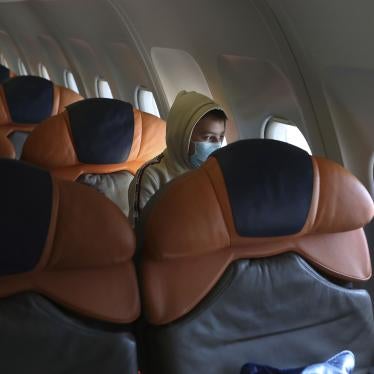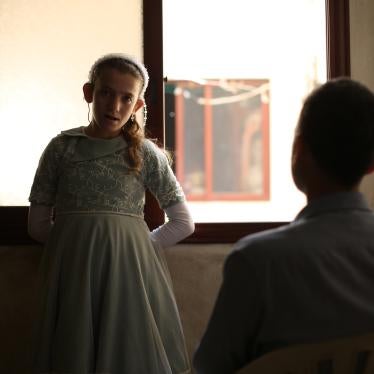Nearly three years ago, when I first traveled to Syria to interview children about the worsening events in their country, they all had a story to tell. Those stories were awful—16-year-olds detained and tortured in dark government cells , and boys who sustained serious bullet wounds in anti-government protests. But these days, children with just one story are the lucky ones.
Yesterday, the United Nations secretary-general released his first report focused solely on the children affected by the armed conflict in Syria. It outlines some of the major abuses children have faced in the Syrian conflict: being recruited by armed groups; being killed and maimed due to the unlawful use of weapons by government forces like chemical weapons, cluster bombs, ballistic missiles, air strikes, and incendiary weapons; being victims of sexual violence; having their schools and hospitals attacked and occupied by armed men and starved and made ill by the denial of humanitarian access.
How many of these violations has each child experienced in Syria’s war to date? Fouad, 17, told me how he was kicked out of his school in Ghouta, a suburb of Damascus, when authorities decided to expel or arrest all children originally from Daraa. Later, he said, government forces “blew up the school.” The secretary-general’s report estimates that 2.6 million children in Syria do not attend school regularly, or at all.
With Ghouta under siege, Fouad said he and his family had no access to humanitarian aid, leaving them without food or medicines. “We used to eat grape leaves and eucalyptus leaves,” he told me. In his report, the secretary-general notes that Eastern Ghouta has been under siege by government forces since October 2012.
In these desperate circumstances, Fouad cast his lot in with a unit of the Free Syrian Army. “I served with them for a few months,” he said. “I gave others medical treatment.” (Human Rights Watch has documented children as young as 14 being used by opposition forces). Fouad left when his family took a chance and escaped the siege in the dead of night, fleeing through orchards and avoiding roads.
The secretary-general’s report contains recommendations to end the abuses children like Fouad face. Both government and opposition leaders should allow unimpeded humanitarian access to all areas of Syria, cease the military use of schools, and end the recruitment of children to participate in fighting. Human Rights Watch has also made these calls repeatedly.
Yet, with no end to the conflict in sight, violations continue to snowball. The abuses affecting children alone should push the Security Council to refer the situation in Syria to the International Criminal Court, and to pass a binding resolution demanding unimpeded access to aid, making clear that failure to abide by it will result in targeted sanctions.
Without these steps, when will Syria’s children get the relief they deserve?







